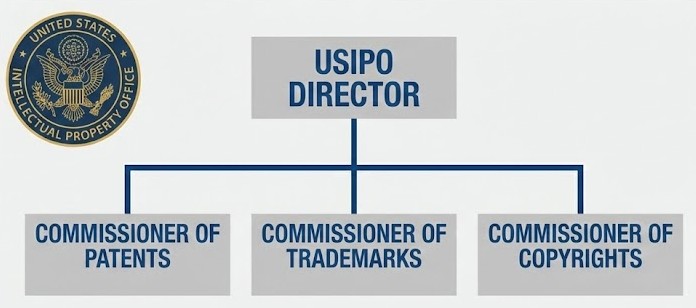On November 30th, the Swiss will decide on a proposal to introduce a 50 percent flat inheritance taxAn inheritance tax is levied upon the value of inherited assets received by a beneficiary after a decedent’s death. Not to be confused with estate taxes, which are paid by the decedent’s estate based on the size of the total estate before assets are distributed, inheritance taxes are paid by the recipient or heir based on the value of the bequest received. on estates above CHF 50 million. If approved, Switzerland would leap to the top tier of global inheritance taxA tax is a mandatory payment or charge collected by local, state, and national governments from individuals or businesses to cover the costs of general government services, goods, and activities. rates, approximating the most aggressive systems in Europe. But the measure faces strong opposition—and for good reasons.
A Radical Departure from Swiss Tradition
Unlike most European countries, Switzerland taxes inheritances at the cantonal level, which fosters tax competition and keeps rates moderate, while offering relief for close heirs. A federal tax would strip cantons of flexibility, raising concerns about autonomy and competitiveness.
Spain, which has a mix of centralized and decentralized tax systems and one of the highest inheritance tax rates in the world, offers a cautionary tale. While inheritance taxes exist nationally, regions have slashed or eliminated them for close heirs, recognizing the economic and social downsides. Switzerland’s proposal moves in the opposite direction, toward centralization and punitive rates.
Why 50 Percent Is Extreme
European inheritance taxes typically range from 30 percent to 60 percent, but these apply progressively and often only to distant relatives. Direct heirs—children and spouses—are usually exempt. In Spain, which shares a similar tax structure with Switzerland, inheritance tax rates for distant heirs can reach an astonishing 87.6 percent—effectively making the tax confiscatory. However, the Spanish regions have reversed this trend: today, 11 of Spain’s 17 regions grant substantial relief for close family members. Additionally, many regions offer up to 50 percent relief for more distant relatives. These measures were motivated by the high inheritance tax liabilities that push taxpayers to disclaim inheritances by selling assets. The Swiss plan ignores this norm, imposing a flat rate that could force asset sales and disrupt family businesses.
Transfers within the nuclear family are widely seen as preserving household continuity rather than creating new wealth. Taxing them risks liquidity crises and undermines incentives to work and save.
Additionally, Switzerland is one of the few countries in the world that still has a wealth taxA wealth tax is imposed on an individual’s net wealth, or the market value of their total owned assets minus liabilities. A wealth tax can be narrowly or widely defined, and depending on the definition of wealth, the base for a wealth tax can vary.. The Swiss wealth tax acts as a substitute for a capital gains taxA capital gains tax is levied on the profit made from selling an asset and is often in addition to corporate income taxes, frequently resulting in double taxation. These taxes create a bias against saving, leading to a lower level of national income by encouraging present consumption over investment. and an estate taxAn estate tax is imposed on the net value of an individual’s taxable estate, after any exclusions or credits, at the time of death. The tax is paid by the estate itself before assets are distributed to heirs., which are common in other countries.
Inheritance Taxes Raise Little Revenue
Proponents argue the tax will fund social programs and help combat climate change, but history suggests otherwise. Revenues from inheritance, estate, and gift taxes have historically accounted for a very small portion of total tax revenues. Collected revenues reached their peak in 1965 when 1.27 percent of total Organisation for Economic Co-operation and Development (OECD) tax revenue came from the inheritance, estate, and gift taxes. In 2023, on average, these taxes accounted for only 0.41 percent of total OECD tax revenue, and among European countries, revenues made up just 0.40 percent of total revenue.
Korea, one of the four countries that levy an estate tax on donors, relies the most on inheritance, estate, and gift taxes, with 2.27 percent of its overall tax revenue coming from estate taxes. In France, the second most aggressive jurisdiction, inheritance, estate, and gift taxes barely collect 1.73 percent of its overall tax revenue. And Switzerland is no different: currently, 0.7 percent of its overall tax revenue comes from inheritance, estate, and gift taxes. That’s already 0.3 percentage points above the OECD and European average. And even a 50 percent wealth tax would only bring in modest revenue, especially when compared to income or consumption taxes.
Economic and Social Consequences
Inheritance taxes are often justified as tools to reduce inequality. Yet research shows they have a limited impact. While inheritances contribute to wealth persistence across generations, they also reduce inequality by proportionally benefiting households lower in the wealth distribution. A recent study finds that inheritances and gifts account for half of the parent-child wealth correlation, while earnings and education account for a quarter. Nevertheless, this correlation drops over time, as the grandparent-grandchild correlation is lower than the parent-child correlation. Another study revealed that inheritances can, in fact, reduce wealth inequality as transfers are proportionately larger (relative to their pre-inheritance wealth) for households lower in the wealth distribution. This has an equalizing effect on the overall wealth distribution.
Moreover, punitive rates encourage tax avoidance and relocation. High-net-worth individuals can—and do—move before such taxes take effect. While annual wealth taxes or steep income taxes exert even stronger migration pressure, a 50 percent inheritance levy would still accelerate capital flight.
Reasonable Concerns
The proposal clashes with Swiss values of fiscal autonomy and competitiveness. It promises negligible revenue, risks economic harm, and ignores the widespread exemption model that protects family continuity. Inheritance taxes may sound like a quick fix for inequality, but they are economically inefficient, socially disruptive, and politically toxic.
Other countries, like Estonia and Latvia, never levied inheritance taxes, and since 1961, 10 OECD countries have repealed their inheritance and estate taxes. Apart from the OECD countries, Singapore, Liechtenstein, Hong Kong, Brunei, and Macau have also abolished these taxes for various reasons, such as their high administrative cost and the lack of political and social support, in addition to the relatively small amount of revenue collected.
Hopefully, Swiss voters will take these concerns to heart and reaffirm a principle that many countries quietly embrace: taxing death is a bad idea.
Stay informed on the tax policies impacting you.
Subscribe to get insights from our trusted experts delivered straight to your inbox.
Subscribe
Share this article



























